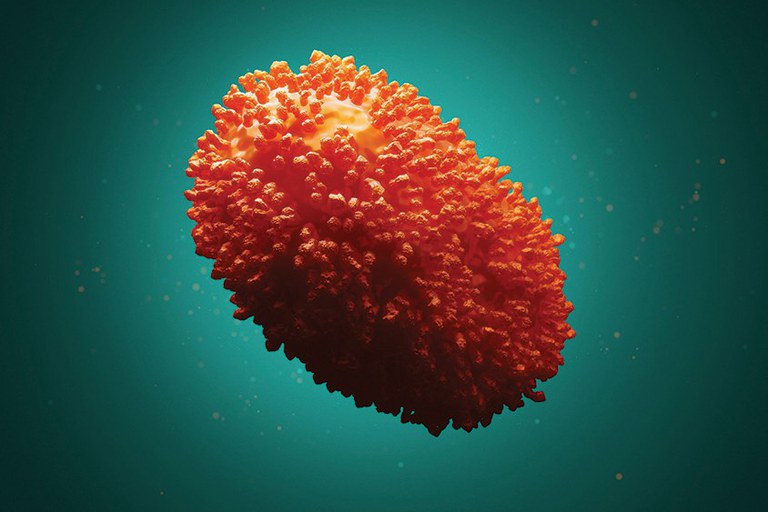Posted: March 30, 2023
While mpox -- commonly known as monkeypox -- has been circulating in Africa for many years, the recent outbreak around the globe has exposed uncertainties about the virus's transmission.
Individuals infected with the mpox virus usually heal from the disease on their own without medical treatment, yet the questions raised reinforce the need for research to understand how the virus spreads and causes disease, which is critical to the development of new vaccines and therapeutics.
Suresh Kuchipudi, Huck Chair in Emerging Infectious Diseases at Penn State and a faculty member in the college, and his colleagues are studying the mpox virus to understand the potential for it to spill over from humans to animals, as well as its development in animal and human cells in vitro (in a test tube). In addition, they will study potential targets for therapeutics to treat the mpox disease.
"Domestic animals like cattle are susceptible to other pox viruses, but their susceptibility to monkeypox and their role in the virus's spread is unclear. We are seeking to understand monkeypox's ability to replicate in the respiratory cells of cattle and pigs in a controlled in vitro environment and use computer models to predict susceptibility," said Kuchipudi, noting that the research will not be conducted in vivo and no animals will be used in this research. "If we find that the virus can replicate in the cells of livestock, that suggests the potential for the virus to spill over into these animals and become endemic in the U.S."
According to the CDC, currently there is no specific treatment approved for mpox virus infections; however, antivirals developed for use in patients with smallpox may prove beneficial. In collaboration with Marco Archetti, associate professor of biology, the researchers will explore a novel, post-infection therapeutic -- a synthetic defective interfering (DI) particle-based therapy for mpox. Archetti previously designed and demonstrated the effectiveness of a synthetic DI therapy for COVID-19.
"A synthetic defective virus is a harmless version of a real virus that interferes with the real virus's growth," said Archetti. "These defective viruses are like parasites of the real virus. Eventually, they cause the extinction of both the disease-causing virus and themselves."
--Sara LaJeunesse
Features
Fostering Forests
Across the United States, forests face unprecedented threats, and scientists in Penn State's College of Agricultural Sciences are conducting novel and complex research to conserve them.
Buzzing With Purpose
Community scientists work to protect Pennsylvania's wild bees
Conservation Reimagined
Exploring new approaches to cope with a changing climate



